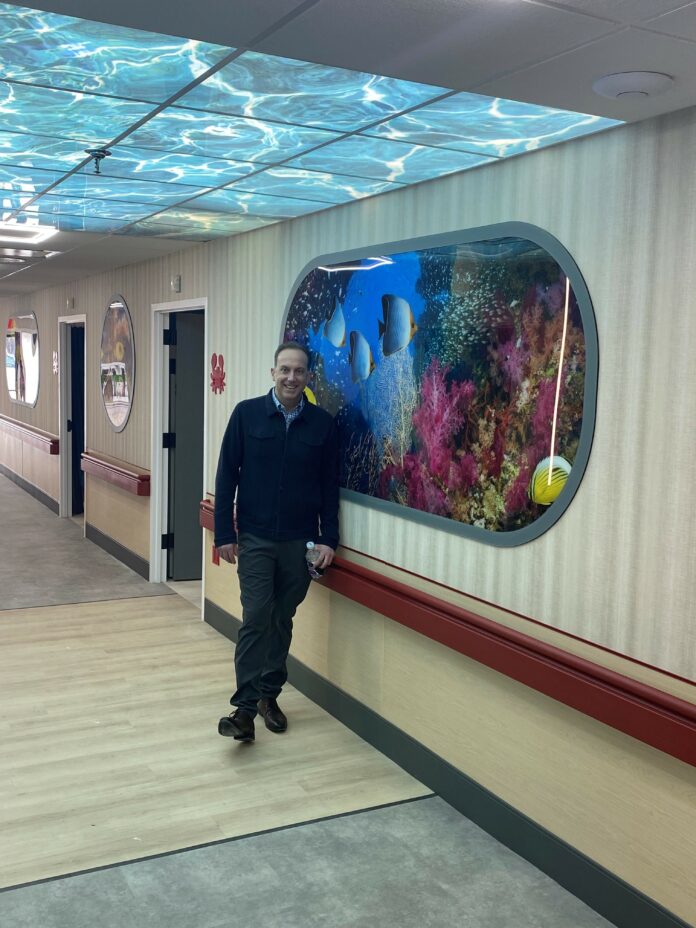The nursing home industry is part of the senior care business boom in our economy; many people in the community are involved in this industry in one way or another. I recently had a conversation with Marc Zimmet, who has been involved in the industry for over 30 years.
Marc built his company with a focus on helping nursing facilities solve the complex and seemingly ever-changing dynamics of reimbursement. There are three important aspects of running a successful nursing home business—patient care, general facility operations, and revenue and expense management. For nursing homes, revenue is referred to as reimbursement, and it is a tricky business, because whether or not a facility gets paid properly can make it or break it.
Marc’s company began strictly as reimbursement consultants, but it has since branched out into many different aspects of the nursing home industry, including general consulting, full-fledged reimbursement management and software. He also operates a well-attended industry trade show every year that focuses on his expertise—reimbursement trends in the industry.
He is also very outspoken about the problems in the industry, and he is, in his own words, “on a personal mission to fix how SNFs are reimbursed and regulated, and that starts with government data.”
Marc speaks passionately about his work. He also revealed how a debilitating sickness changed his outlook on both business and life. -Nesanel
I was born in Brooklyn, but we moved to Central New Jersey when I was nine months old, and I lived there my whole childhood. I saw my hometown change from farmland to suburbia. My parents got married when my mother was 19 and my father was 22. I’m the second of four kids.
“My parents are both Ashkenazi Americans. My maternal grandfather was born in Poland and came over with my great-grandmother, who spoke no English, only Yiddish. My grandparents spoke Yiddish when they didn’t want their children to know what they were saying. As a result, my parents were fluent only in idioms and expressions that I picked up with distorted pronunciation. As with so many Eastern European Jews who passed through Ellis Island to the tenement shtetls of Delancey Street and Brooklyn, it took only two generations for our language to die. Little did I know it was the language of my future.
“Growing up, my father worked as an accountant. Then he went to work for a fiscal intermediary, an insurance company contracted with the federal government to help administer the new Medicare program. He audited Medicare claims and cost reports submitted by hospitals that determined how much they were paid. Then he left the fiscal intermediary to become an independent consultant.
“New York City was once home to dozens of small for-profit hospitals that don’t exist anymore. My father would help these hospitals fix their cost reports and reclaim money they were owed. The hospitals received a settlement check from Medicare, and he took a contingency fee for his work. He only seemed to work about 60 days a year, but we lived a comfortable middle-class existence in Central New Jersey, where the farmlands became modest housing developments.
“I knew I wasn’t growing up in a traditional home environment. Other fathers worked typical nine-to-five jobs, but mine seemed to have a lot of free time on his hands. When I was younger, we didn’t have the greatest relationship, but baruch Hashem, we are very close now. In fact, when I act a certain way and someone snidely comments, ‘You’re turning into your father,’ I say, ‘I should be so lucky.’
“My mother was the traditional Ashkenazi stay-at-home mom. We were and are very close; she taught me that family and being Jewish are what matter most. I had a traditional, culturally Jewish, suburban middle-class upbringing. The world changes, but two constants in my home were unmitigated support for Israel and the fact that I was going to college. They said I could become anything I wanted, but filtered through the cultural mindset, that meant I could only be a doctor, a lawyer or an accountant, or else I’d starve. Those were the only three options for a career. I remember telling my mother once that I was thinking about going into advertising, and I can still hear her screaming her response. That wasn’t happening.
“I went to public school growing up. We went to Hebrew school at the temple. I went to Manalapan High School, then to Syracuse University for college and Baruch College for my MBA.
“Our family celebrated and went to shul for the High Holidays. I studied for my bar mitzvah, and I can read Hebrew; my clients are amazed at that. I don’t understand what most of it means, but I can read it. It’s my little trick.
“I was entrepreneurial when I was younger. In the seventh grade, I wanted to start a software company. I was programming early on an old Apple device. This was 1982. I started an unofficial company and started putting flyers up everywhere. As a teenager, I got distracted and eventually lost interest in it. But I still have my sketches of video games I wanted to create.
“I was always looking for ways to make some money without working. In high school and even in college, I never let schoolwork get in the way of my education. I was what they call an underachiever academically, but I was always hustling on the side.
“When I was in college, I was under the impression that I had to go into one of the careers that my parents expected of me. I got into the business school, and I had an accounting class in my sophomore year at 7:30 in the morning. For whatever reason, I function better when I sleep less; when I get more than seven hours of sleep, I’m groggy all day. The only class I ever got an A in was my accounting class because it was so early, so I became an accounting major. I’m not going to lie—I graduated by the skin of my teeth.
“After college, I realized I hated accounting. I decided I wanted to work in finance. I worked for Lehman Brothers for a year when I was 22. I was a trader’s assistant on an international bond desk that traded Latin American bonds. I worked right next to the Twin Towers from 7 a.m. to 7 p.m. I didn’t see daylight during the work week.
“I was a decently happy guy, having fun in life but miserable at work. At this point, my father, who was still working with hospitals, was basically out of a job. Hospital reimbursement changed, so whatever he knew how to do for them didn’t matter anymore. However, it still mattered for nursing homes. One day, he said, ‘Marc, you’re miserable at work. The hospital business is done for me, but I think there’s an opportunity in nursing homes; they’re small, but there are many more of them. Why don’t you come learn the nursing home business? I can teach you how to look at reports, and we’ll go from there.’
To read more, subscribe to Ami





















